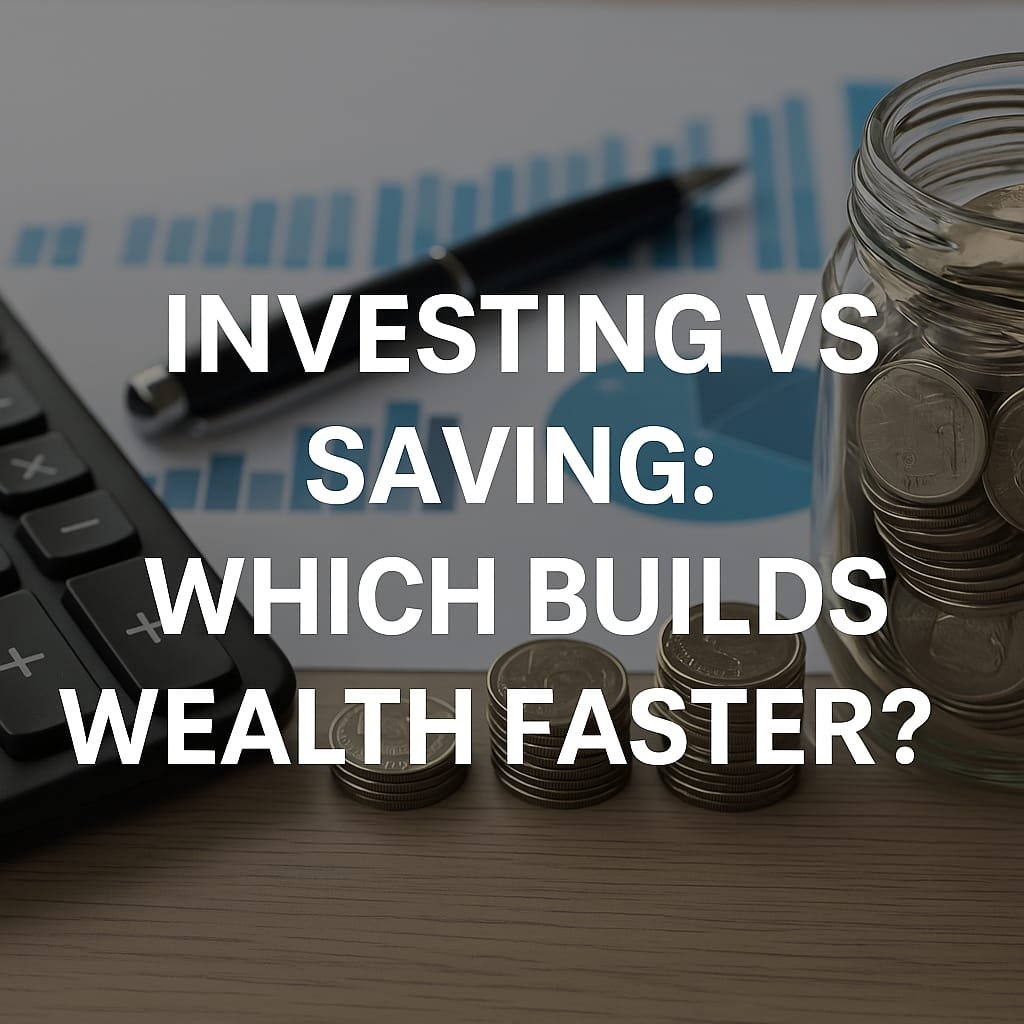When it comes to growing your money, the debate between investing vs saving is more relevant than ever. While both strategies serve essential roles in personal finance, understanding the difference between saving money vs investing can be the key to unlocking financial success. So, how to build wealth faster—by stashing money in a savings account or putting it to work in investments?
Let’s dive into the pros, cons, and best strategies to find out saving or investing which is better for your wealth-building journey.
Understanding the Basics: Saving Money vs Investing
Before choosing a side in the investing vs saving debate, it’s essential to know what each means.
Saving money refers to putting cash into secure, low-risk accounts like a savings account or a fixed deposit. It’s highly liquid, meaning you can access it easily, and it’s ideal for emergency funds or short-term goals.
Investing, on the other hand, involves putting money into assets such as stocks, bonds, mutual funds, or real estate. Such financial instruments can yield greater returns over time, although they also carry increased risk compared to traditional savings.
When comparing saving money vs investing, savings offer safety, while investments offer growth.
Investing vs Saving: Which Builds Wealth Faster?
If your goal is how to build wealth over time, it’s clear that investing typically offers a higher return than saving. Here’s a quick comparison:
- Savings Accounts: Average annual interest is between 2% and 4%.
- Stock Market (Long-Term Average): Returns can range from 7% to 10% annually.
Real Estate or Mutual Funds: Returns may vary, but generally higher than savings accounts over time.
In the long run, investing vs saving shows that investing helps beat inflation and compound your earnings, making it the best way to build wealth.
The Power of Compound Interest in Investing
Compound growth is a key advantage that makes long-term investing exceptionally effective. Unlike savings where interest is minimal, investment returns reinvested over time lead to exponential growth.
For example, investing $5,000 per year at an average return of 8% could grow to over $300,000 in 20 years. Even with consistent contributions, a standard savings account might accumulate much less over two decades. That’s why in the saving money vs investing argument, investing clearly wins when it comes to long-term wealth.
When Saving Makes More Sense Than Investing
Despite the growth potential of investments, saving still has its place in a balanced financial plan. If you’re planning for:
- Emergency funds
- Short-term goals (less than 3 years)
- Big-ticket purchases
then saving is the safer choice. In these cases, saving or investing which is better depends on your timeline and risk tolerance.
Risk and Reward: A Balancing Act in Wealth Building
While investing builds wealth faster, it comes with volatility. Markets can fluctuate, and losses can happen. Savings, although slower in growth, offer a safety net.
A smart approach to how to build wealth is blending both: save for immediate needs and invest for future goals. This way, you balance security with growth.
Best Way to Build Wealth: A Strategic Combination of Saving and Investing
Instead of viewing investing vs saving as a competition, think of them as teammates. Use savings for liquidity and security. Use investments for growth and long-term financial freedom.
Tips to combine both effectively:
- Start by creating a financial safety net that covers three to six months of your living costs.
- Contribute to retirement accounts (like IRA or 401k)
- Diversify your investments
- Automate savings and investing contributions
- Review and rebalance regularly
This strategy is not only the best way to build wealth, but it also creates a financial cushion during economic downturns.
Saving or Investing: Which is Better for Different Life Stages?
- In Your 20s & 30s: Focus more on investing. Time is on your side, and you can afford to take risks.
In Your 40s & 50s: Start balancing investments with savings for specific goals like college or retirement.
- In Retirement: Shift focus more to savings or low-risk investments to preserve capital.
Your age and goals largely dictate the answer to saving or investing which is better.
Conclusion: Investing vs Saving—Choose Wisely, Grow Consistently
So, when comparing investing vs saving, the clear winner for building wealth faster is investing. However, savings provide necessary stability and liquidity. The smartest path to financial freedom is a balanced approach—save smart, invest smarter.
By understanding the benefits of both and applying them strategically, you’ll not only grow your wealth but also secure your financial future.
